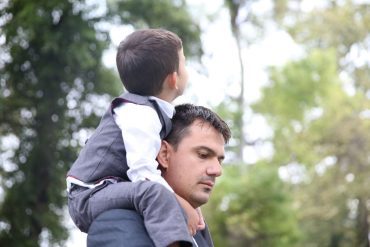By Geordie Bull
When I was 16, my mum took me to a naturopath to deal with a cyst on my left cheek.
Frustratingly, it had grown back after being removed by an expensive plastic surgeon a year before. I was freaking out because, as a teenager, a visible lump on the face was clearly a disaster.
While the naturopath did her job of concocting a potion of herbs, she also gifted me with something I believe was infinitely more powerful. She listened to me.
Back then, no medical professional (or anyone, really) had asked me deep questions and listened as I poured out my angst over ex-boyfriends, school work and friends – without offering advice or judgement. Upon leaving, I had no idea if her potion would work, but I felt noticeably lighter.
Six months later, the cyst had completely disappeared.
I never knew whether it was the herbs that did it or the fact that the naturopath facilitated the integration of my complex emotions, but I intuited that it was the latter.
This experience kick-started in me a desire to learn more about emotions and how they affect the physical body, leading me to the work of Louise Hay, Deepak Chopra and more.
At the time, these now famous teachers were considered cutting edge in revealing the mind/body connection (something eastern cultures have long known) to the western world. Nowadays, with considerable scientific research on board, the link is championed by top scientists and doctors like Bruce Lipton and Joe Dispenza.
Yet, in my observation, most people don’t know how to take care of their emotional health on a daily basis. When women come to me for help and advice with relationships, self-worth and motherhood, the first thing I teach them is how to nurture their emotional wellbeing. I know that when this part of the puzzle is taken care of, the rest of the pieces – from relationships to physical health – often fall into place.
Whether you’re struggling with physical symptoms, relationship challenges or parenting issues, the foundation for healing and moving through them can be found in nurturing your own emotional wellbeing first.
Here are 5 ways to begin tending to your emotional health right now:
1. Understand that the purpose of emotions is communication (not to ruin your life!)
Most people have been taught to deal with negative emotions through denial, distraction or numbing. As you probably realise, none of these methods work in ‘getting rid’ of the emotions, they just pop back up – often in the form of physical symptoms.
The reason for this is that emotions are your body’s way of communicating something important. If you’re feeling a strong negative emotion it means that your thoughts, behaviours or habits aren’t intuitively aligning and you need to explore them.
Instead of pushing the emotion away, practice the habit of asking what its message is through journal writing or speaking to an experienced counsellor or coach. When the message is received and integrated, the messenger can rest, knowing it has been fully heard.











